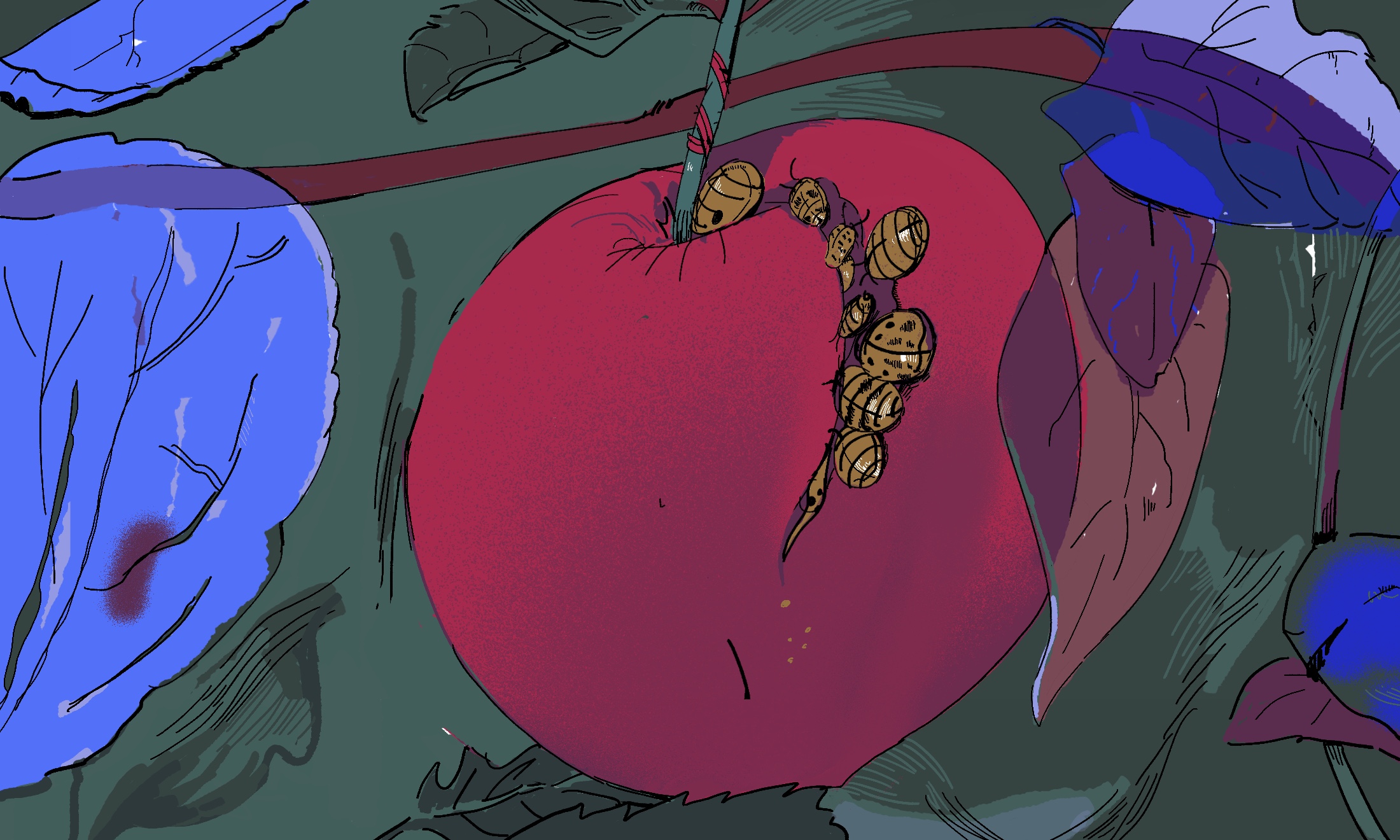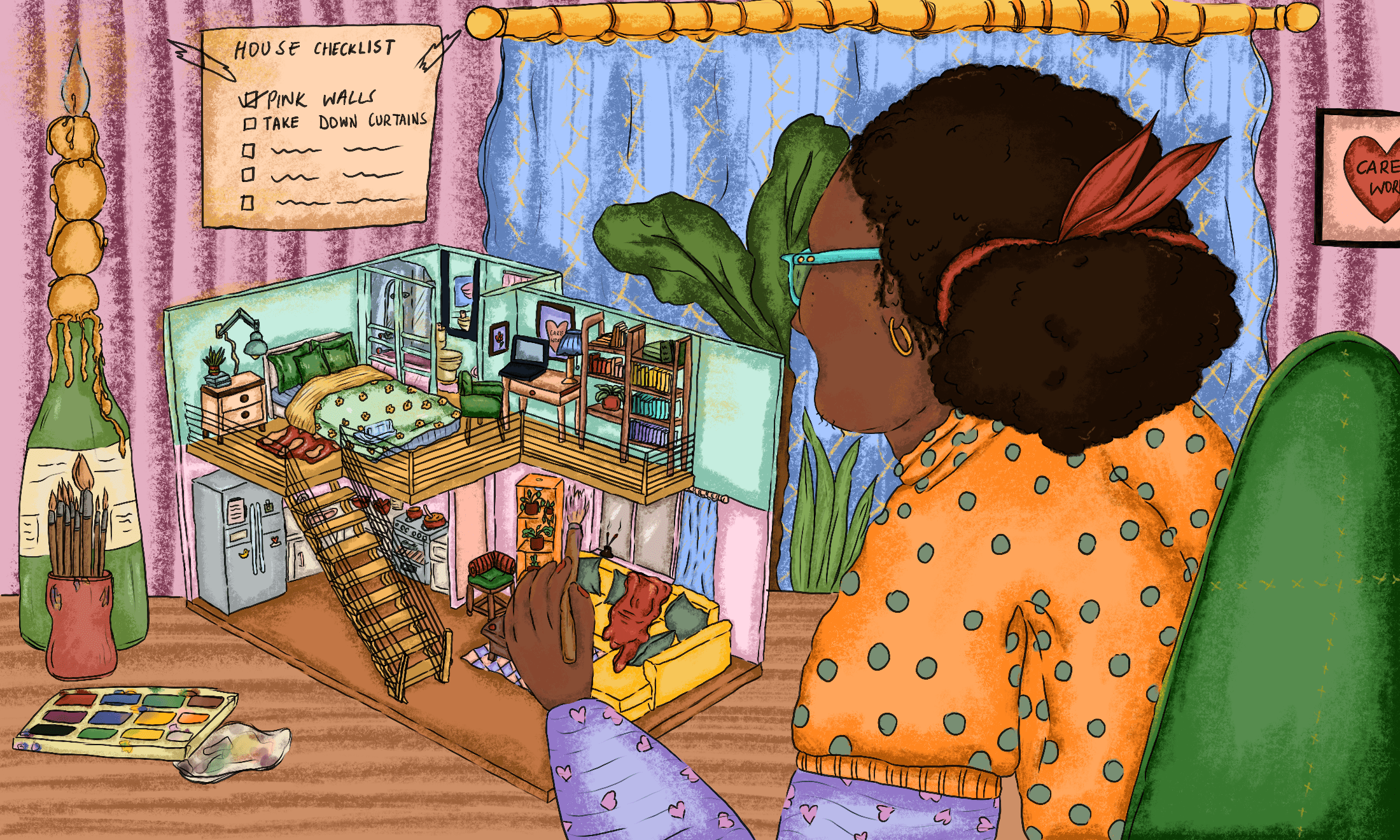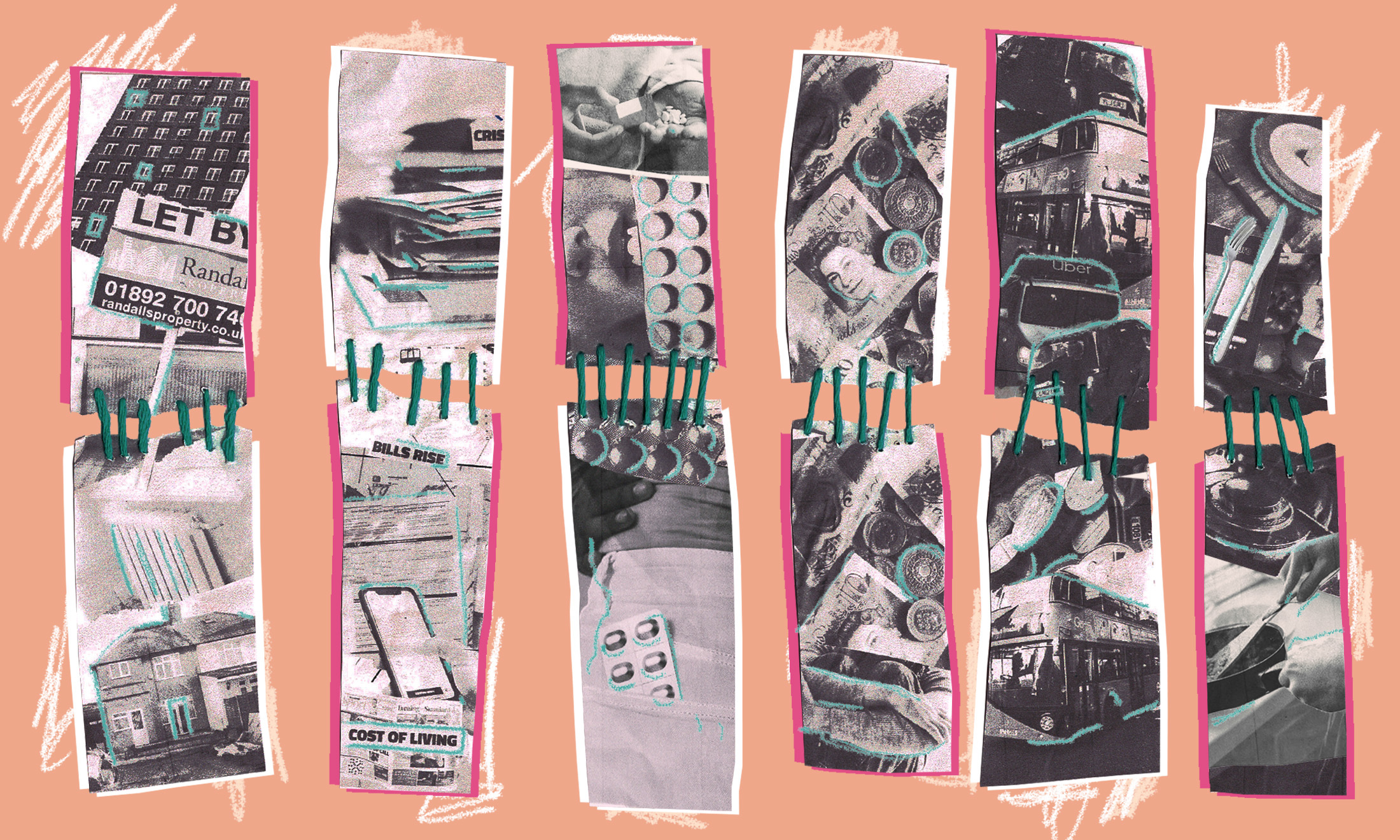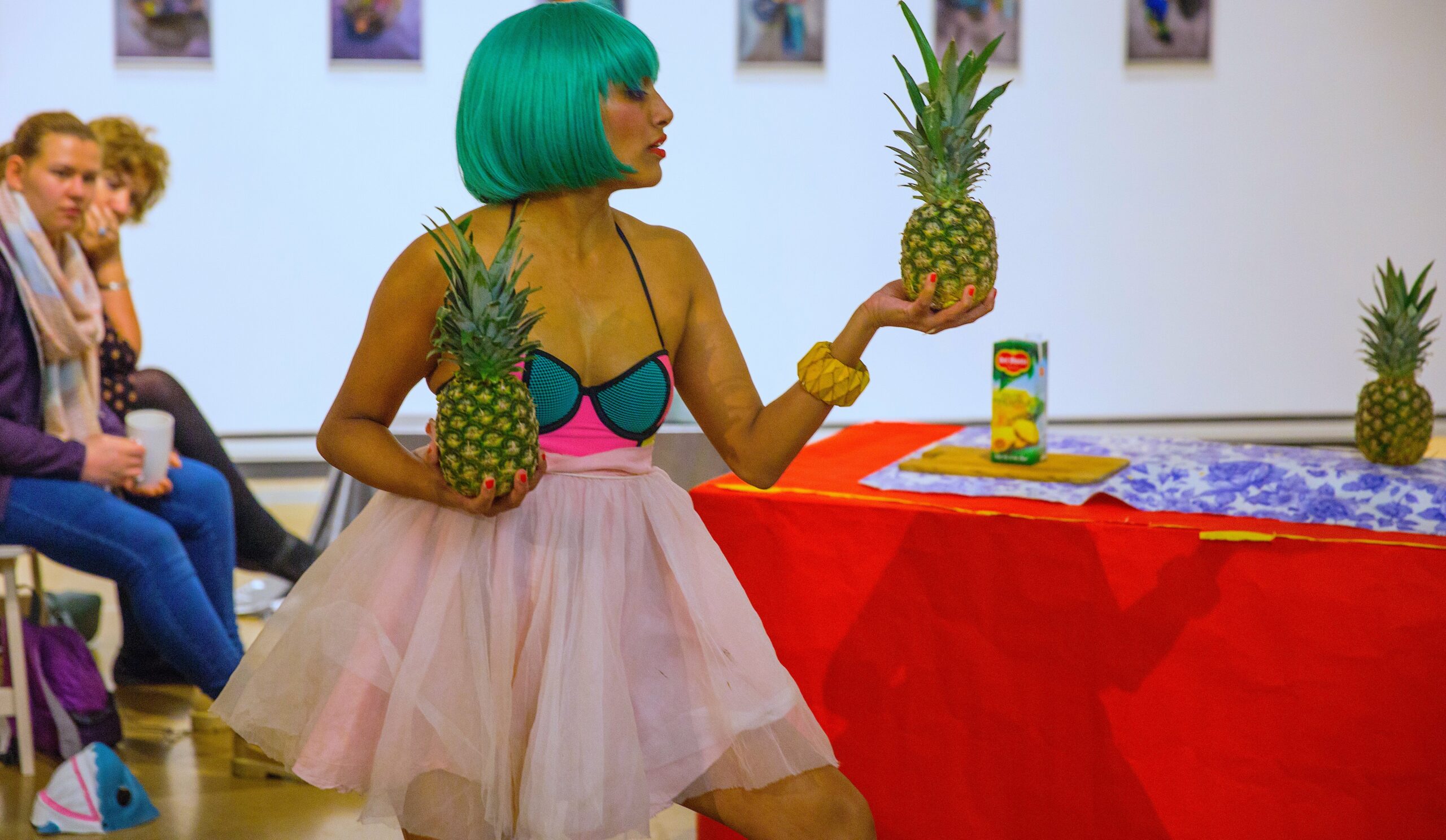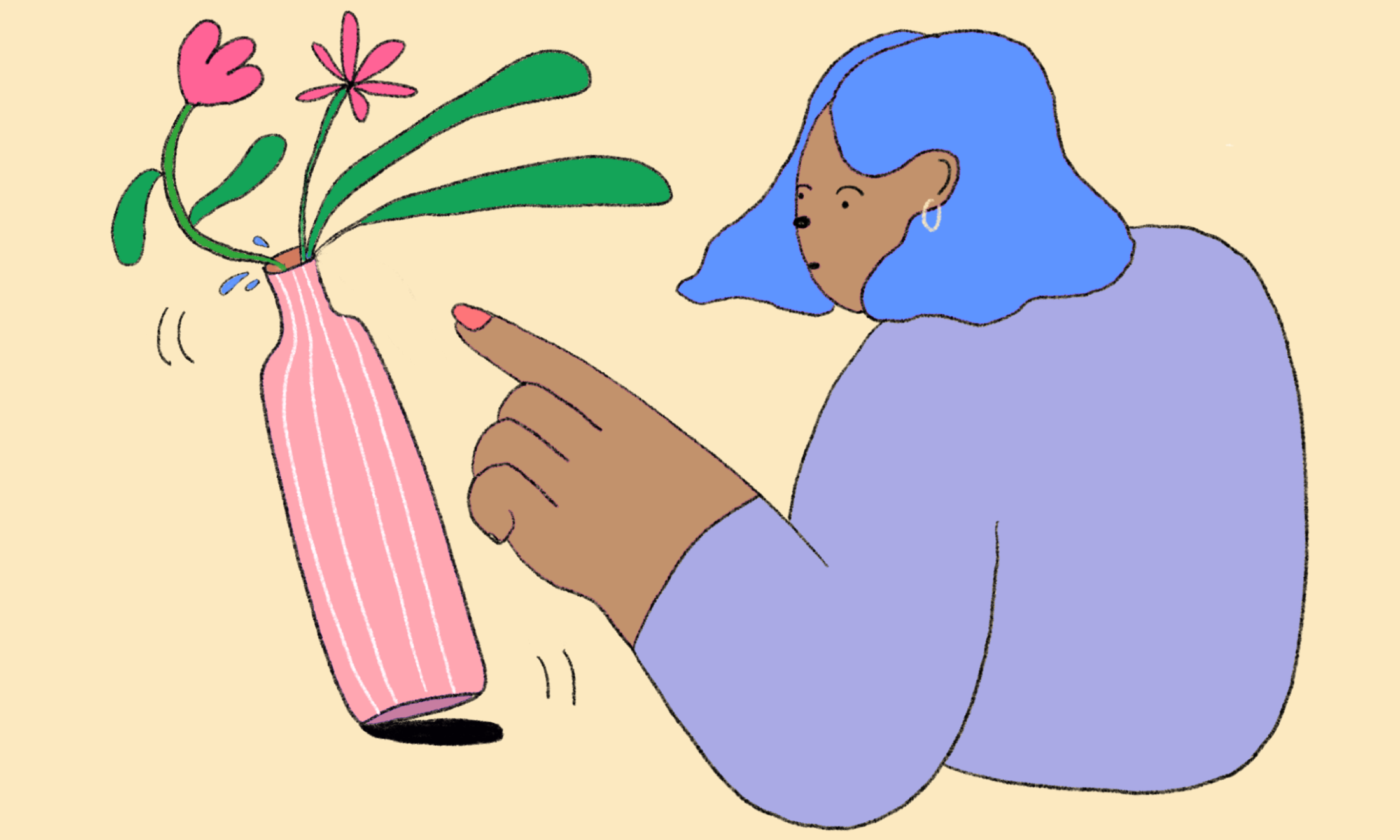
Illustration by Tessie Orange-Turner
Combined, we’ve had disabilities practically all our lives, knowing both what it means to be born with a disability, and what it is to navigate developing a disability later in life. We speak about our experiences as a duo on our YouTube channel – The Triple Cripples – two black disabled women navigating a world where our existence seems mythical, speaking frankly about our experiences in life, love and society. Sex and disability is the theme for this year’s Sexual Health Awareness Week. Could society be shifting into a direction where disabled people are no longer infantilised and instead seen as whole human beings, with the full range of human needs, including intimacy and sex? Dating as a disabed black woman, comes with its own unique challenges. The fetishisation of black women is no secret and disability creates a whole new landscape of fetishisation and quite frankly, confusion (on both sides).
Our sex education in school was woefully inadequate. There were never any visibly disabled people represented as the object of someone else’s desires, or as someone who could explore the full range of human experience, such as childbirth and parenthood. Instead, sex education was about the facts and figures, and learning all the different sexual health conditions and complications that could arise. Nothing was mentioned about the non-medical implications of sex for even a non-disabled person, let alone someone with a disability. Sex was something we were taught about, not something in which we were expected to participate.
So far, much of our lives have been spent focused on attempting to reach for the good we were told to desire. A good education, a good job, a good husband and good children. However, this “good life” comes with a caveat. When you and your condition nearly share an anniversary, it becomes apparent that yours is not a body which someone can easily love and desire. It is one that requires a “special kind of person” that can overlook, or learn to get used to any physical quirks. With these thoughts as companions, you devote a lot of energy to making a potential date or partner’s life as easy as possible. Plans are carefully thought out and executed so you never come across as “too disabled”. Arriving at date locations slightly earlier than the other person, is a must to avoid your dinner partner bearing witness to how difficult it can be for you to to sit at a table. If and when things lead to sex, you put your best foot forward. Literally. We make ourselves and our bodies as palatable as possible. This goes beyond the clothes we wear and the makeup we do or do not use.
“If ingrained ideas of sex are tied to an ability to do certain things, then navigating the world of sex as a disabled woman is more complex than you can imagine”
If ingrained ideas of sex are tied to an ability to do certain things, then navigating the world of sex as a disabled woman is more complex than you can imagine. It can be awkward and difficult engaging in sexual encounters if what your body can do, has changed or it is different from the widely accepted “norm”. Societal ideas of sex and romance play an important role in the way in which we approach our vision of “self”, within interactions. Living in a world where people cannot even see us as women, means that we are not recognised in our entirety. Disabled women often have to “reinvent the wheel” when it comes to navigating sex, romance and dating. Figuring out and being able to ask for what we want in a world that says we are being done a favour for being alive within it, is just one symptom of deep-rooted inequality. If we are meant to be grateful to just be here, do we have the right to want anything at all?
The constant erasure of visibility and delegitimisation of our humanity as disabled black women is nothing new. Because of this, it’s important to constantly assert that we are still, in fact, human. Disabled women have real concerns regarding sex and safety. Sometimes people that approach disabled women, online or offline, fall into some frightening categories that make interactions potentially more dangerous. They approach us because they seek to fetishise disabled women. These people are attracted to, and seek to take advantage of people that are more vulnerable than them. Not being seen as a whole human being, is already problematic, however, add to it the societal dynamics of a collective ignorance towards disabled people, the wide acceptance of our infantilisation and “lack of sexual desirability” makes things even more difficult. couple that with social and physical invisibility and then on top of that, factor in varying levels of physical mobility, navigating sex while trying to maintain your sexual health as a disabled person require so much more.
While it can be a daunting task to ask someone to get a sexual health check, having a disability compounds this. Often we get the impression that the mere fact that a person is willing to engage with us sexually should be enough. The lack of sexual health information catering to disabled people suggests that we’re not allowed to ask for more, because apparently, we should be happy to even be considered sexual. These ideas can get in the way of people getting tested and requiring their potential partners to be tested.
Being disabled is already a full time job, and having it encroach on every aspect of our lives is tiresome. For us, navigating life with visibly disabled bodies means that there are a number of presumptions already placed upon us. We’ve found it really useful to engage with schemes like SH:24, an NHS programme which provides free and confidential sexual health services 24 hours a day. SH:24’s free sexual health test kits arrive in nondescript packaging and contain everything a person needs to freepost their samples back to the lab.
“While it can be a daunting task to ask someone to get a sexual health check, having a disability compounds this”
This week we did a takeover of SH:24’s Instagram to kick off Sexual Health Awareness Week, which sends a powerful message to the world about not only disability and sex being allowed in the same room, but the necessity of disabled black women, being at the forefront of the conversation. Triple Cripples was created to highlight the narratives and increase the visibility of disabled women, femmes and non-binary people of colour – that includes sex. Being offered this platform reminds us that our bodies are enough, we are enough. Sharing our experiences of navigating the world of sex and dating is essential in including disabled black women into these discussions on our own terms, using our own voices.
The creation of Triple Cripples has allowed for more visual representations of these narratives. We join such people as Vilissa Thompson, and Imani Barbarin who use their platforms to amplify what it means to be black, disabled and women in the United States. Over here in the UK, a delightful trio of Katouche Goll, Tobi Adenowo and Fatima Timbo have a show dedicated to what it means to be young, black and disabled. While there is still more that needs to be done, there are those that have done it, are doing it and will continue to do so.
This article is part of gal-dem’s Sexual Health Awareness Week series. You can keep up with the series here

